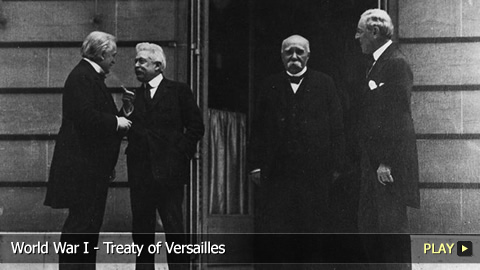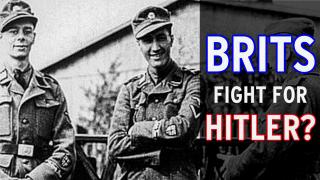World War I - Treaty of Versailles

Conflicts Between the Winners
The five major victors were considered the United States, Great Britain, France, Japan and Italy. As such, these five nations were responsible for the most important terms of the peace treaty. However, the process proved slow and difficult as each nation had its own motives. Japan’s representatives were the first to bow out. Italy was next to leave negotiations when the country’s territorial claims to the Fiume region were rejected.
Germany Accepts Responsibility
GERMANY! - Mini Fantastic Facts
The remaining three nations at this point were Great Britain, France and the U.S. Despite the conflicting aims of these countries, by June 28th they had finally agreed upon a treaty. Considered harsh by many and too lenient by others, the Treaty of Versailles forced Germany to accept sole responsibility for causing the war.
Reparations
Germany was therefore forced to make reparations to the price of 32 billion dollars, which equals roughly 393 billion dollars today. Many economists of the time felt this number was excessive, as it was expected to take Germany until 1988 to repay. In addition, Germany’s economy was already in complete disarray. Because of this, a good portion of the compensation took the form of coal, steel, and agricultural products. Germany was also made to cede large areas of its territory, and to surrender control of its colonies.
The War Guilt Clause
10 Video Game Franchises That Should NOT Have Gone Open World
The treaty proved unpopular with many, especially throughout Germany. The country initially refused to sign the treaty, claiming the War Guilt Clause was a "violation of honor." However, Germany was offered no other option and eventually signed the treaty under a new government. Popular opinion theorized that the failure of the German public to support the war was akin to stabbing the country in the back. The Jewish people received the majority of the blame, with many claiming they sold Germany out to the Allies. This "Stab-In-The-Back Legend" proved instrumental in the rise of the Nazi Party and the political ascension of Adolf Hitler in the years that followed.
How the Treaty Lead to WWII
Top 10 Strangest Unsolved Mysteries of WWII
At the time of the signing, many believed the treaty did nothing to pacify or permanently weaken the Germans. Because of this, the Treaty of Versailles was widely expected to lead to future conflict. The French Field Marshall Ferdinand Foch famously claimed, "This is not peace. It is an armistice for 20 years." Sure enough, just slightly over 20 years after the signing of the Treaty of Versailles, World War II began, and became the most widespread war in history.




